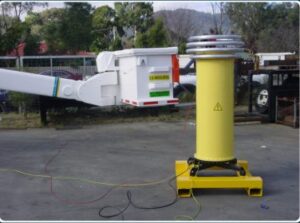
Real estate investment can be a lucrative venture, offering both financial stability and the potential for long-term wealth accumulation. However, starting a real estate investment business requires careful planning, knowledge of the market, and the ability to make informed decisions. In this comprehensive guide, we will explore the essential steps to get started in the real estate investment industry and lay the foundation for a successful business.
Educate Yourself about Real Estate Investment
Before diving into the world of real estate investment, it’s crucial to acquire a solid understanding of the industry. Take the time to educate yourself about the various aspects of real estate, including property types, market trends, financing options, and legal considerations. Here are some key areas to focus on:
Market Research: Study local and national real estate markets to identify trends, demand patterns, and potential investment opportunities. Analyze factors such as population growth, employment rates, infrastructure development, and rental market dynamics.
Property Types: Familiarize yourself with different property types, such as residential, commercial, industrial, and mixed-use properties. Understand the pros and cons of each type and identify which aligns best with your investment goals.
Financing Options: Learn about the different financing options available for real estate investments, such as traditional bank loans, private lenders, partnerships, and crowdfunding platforms. Explore the advantages and risks associated with each method.
Legal Considerations: Understand the legal aspects of real estate transactions, including property ownership, contracts, leasing agreements, zoning regulations, and tax implications. Consult with professionals such as attorneys and accountants to ensure compliance with the law.
Set Clear Investment Goals and Strategies
Establishing clear investment goals and strategies is essential to guide your real estate business. By defining your objectives, you can make informed decisions and stay focused on your long-term vision. Consider the following steps:
Define Your Investment Objectives: Determine what you aim to achieve through real estate investments. Are you looking for short-term profits through property flipping, or do you seek long-term wealth accumulation through rental income and property appreciation? Clarify your goals and create a roadmap to achieve them.
Develop an Investment Strategy: Based on your objectives, develop an investment strategy that aligns with your risk tolerance, financial capabilities, and market conditions. A sell your house fast Florida investor told me to decide whether you want to focus on residential, commercial, or mixed-use properties, and whether you prefer to invest locally or explore other markets.
Create a Diversification Plan: Diversification is crucial to mitigate risk and maximize returns. Spread your investments across different property types and locations to reduce dependency on a single asset or market.
Build a Reliable Network
Building a strong network of professionals and industry contacts can provide valuable support and insights throughout your real estate investment journey. Consider the following network-building strategies:
Real Estate Agents and Brokers: Establish relationships with experienced real estate agents and brokers who have in-depth knowledge of the local market. They can help you identify suitable investment properties and negotiate deals.
Contractors and Handymen: Connect with reliable contractors, plumbers, electricians, and other service providers. Building a team of trusted professionals ensures timely and cost-effective property renovations and maintenance.
Mortgage Brokers and Lenders: Establish connections with mortgage brokers and lenders to secure financing for your investments. They can offer guidance on loan options and help you navigate the application process.
Other Investors: Attend local real estate investment clubs, seminars, and networking events to meet and learn from experienced investors. Joining online communities and forums dedicated to real estate investment can also provide valuable insights and support.


